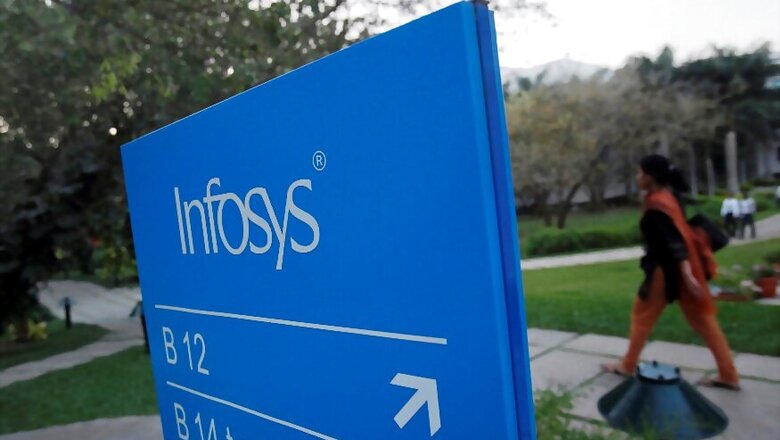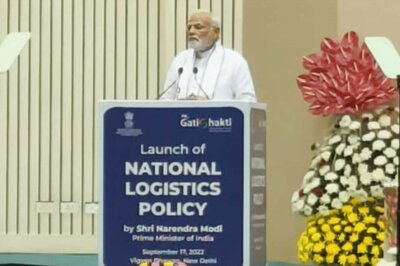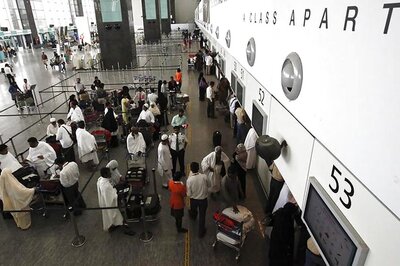
views
The whistleblowers’ complaint against the Infosys management should be seen in a larger context: some businesspersons are more equal than others. There are business houses that have thrived primarily because of their proximity to politicians; they have benefited from, what Finance Minister Nirmala Sitharaman calls, ‘phone banking.’ But nothing happens to them. Then there are less equals; Infosys figures prominently among them. Even minor improprieties become subjects of major debates.
This is not to say that the allegations against Infosys bosses, made by “ethical employees”, should be ignored. The charges made are serious and ought to be taken seriously: reversal of $50 million in a contract was not recognised; neither are visa costs fully recognised; margins in certain large contracts are much lower than expected and zero in certain cases; treasury took risky bets to augment other income; reporting in investor presentations and annual reports was biased and incomplete; critical information was not disclosed so that short-term profits could be boosted; and CEO Salil Parekh and CFO Nilanjan Roy bypassed critical reviews.
Action has been initiated by the company and others. Infosys has sent the matter to the audit committee for probe. It has engaged Shardul Amarchand Mangaldas for an independent investigation. Law firms have also been assigned the task of probing whistleblower allegations.
Meanwhile, the US Securities & Exchange Commission and the Securities & Exchange Board of India are investigating into the charge that Parekh and Roy were using aggressive accounting strategies and potentially hiding information from auditors to doll up the balance sheet.
The government is also seized of the matter. “While we will take a detailed look into the allegations to ensure that all serious accusations are examined closely, we are also clear that shoot and scoot whistleblower allegations do not harm business continuity,” a top official close to the development told a business newspaper.
“The focus is to ensure a speedy investigation and to not let this issue derail the growth momentum that Infosys has seen over the past year. You should not have distractions in a challenging business environment,” a second person told the newspaper.
To make matters worse for Infosys, three US investor rights law firms — Bragar Eagel & Squire, The Rosen Law Firm and Howard G Smith — have filed a class-action lawsuit against it. Bragar Eagel & Squire said “Infosys disclosed that it had received whistleblower complaints alleging ‘unethical practices’ by the company’s management to inappropriately boost short-term revenue and profit”.
Unsurprisingly, the investors stock suffered a battering at the bourses. In a single session after the allegations surfaced, its market cap lost more than Rs 45,000 crore.
Two years ago too, many irregularities were reported at Infosys, leading to the exit of the then CEO. Whether Infosys bosses are guilty of the charges hurled against them recently will be known in a few days, but one wonders why few, if any, bother about the massive scams and wrongdoings by the promoters and top executives of other companies.
What were the various mechanisms that are supposed check financial fraud doing when the promoters of PMC Bank and of the now bankrupt Housing Development & Infrastructure Ltd (HDIL) robbed the cooperative bank? The PMC Bank lent about Rs 6,500 crore — that is, almost three-fourths of its total lending worth Rs 8,800 crore — to HDIL over the years. Why didn’t anybody see it?
Nobody even saw the private jets, Rolls Royces, and Yachts of HDIL promoters.
Like the Wadhawans, the former chairman of Jet Airways, Naresh Goyal, was also more equal than others. But unlike in the case of the former, his unsavoury connections were quite well known. In his A Feast of Vultures: The Hidden Business of Democracy in India (Harper Collins, 2016), investigative journalist Josy Joseph mentions a letter Intelligence Bureau joint director Anjan Ghosh wrote. “It was a single-page note to Sangita Gairola, joint secretary at the Union ministry of home affairs (MHA), saying that his agency had ‘confirmed information of intermittent contacts between Naresh Goyal and underworld dons, Chhota Shakeel and Dawood Ibrahim, to settle financial issues. There is strong suspicion that parts of Goyal’s investments may have accrued through the help of und¬erworld groups, prominently headed by Dawood and Chhota Shakeel’.”
Former IB chief KP Singh also wrote in a letter that Goyal “appeared to have earned his wealth through smuggling and other illegitimate means and that the airlines was probably investigated for FERA [Foreign Exchange Regulation Act] violations”.
It was not just the security agencies that were gunning for Goyal; in 2000, the then disinvestment minister Arun Shourie had openly accused him of having scuttled the privatisation of Air India. Questions were raised about the funding of Jet Airways. But nothing happened to Goyal; his business thrived unabated; he went international when the Congress-led United Progressive Alliance was in office. Foreign countries were concerned about Jet; their concerns were brushed aside by the Indian government.
Worse, there was no criminal or civil inquiry against Goyal for decades; for much less, businesspersons have faced the ire of the Enforcement Directorate, the Central Bureau of Investigation, the Serious Fraud Investigation Office, etc. It is only recently that some inquiries began against him in money siphoning cases.
Alacrity of action in response to the charges against Infosys top executives is welcome; it will also be welcome in other cases.
(The author is a freelance journalist. Views expressed are personal)



















Comments
0 comment